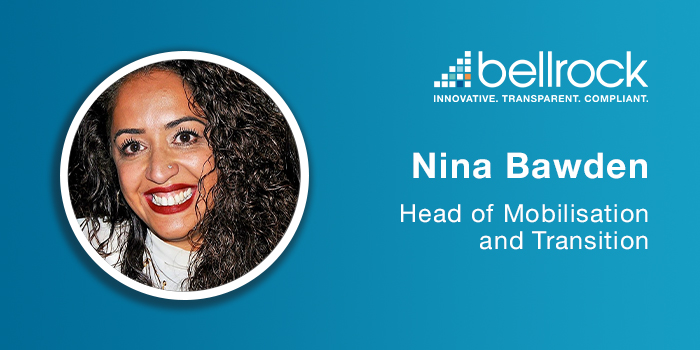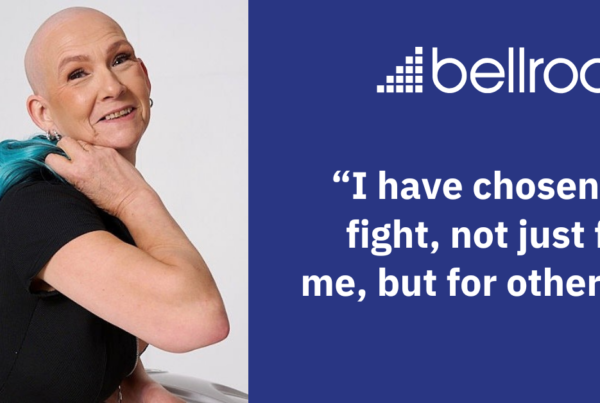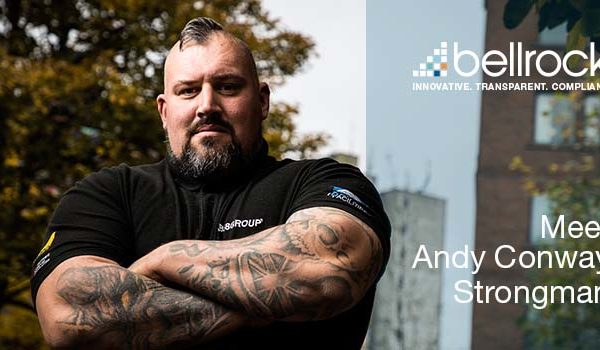An informal chat with Nina Bawden, Head of Mobilisation and Transition at Bellrock Property & Facilities Management:
To celebrate International Women’s Day, Bellrock wants to shine a light on some of our amazing female employees at Bellrock and the challenges they have overcome in their careers in science, technology, engineering and mathematics (STEM).
At Bellrock, we believe in equal opportunities for everyone and gender inequality is an issue that is close to our hearts. The fight against gender inequality is one that is a long way from being won but we know that by leading the way and challenging how people think, we can make significant progress.

Nina Bawden – Head of Mobilisation and Transition
What is your professional background?
I started as a cleaner and I had my firstborn at the age of 18, so I was a very young mum. Back then, I didn’t have a lot of education. I was focused on my children but was eager to learn more along the way. I had professional goals but doubted myself as I was a young mother. A few years later, I moved from cleaning into hospitality and started working as a waitress. I figured out I was pretty good at communicating with clients and customer service in general, so I slowly worked my way up to supervision and hospitality management.
I remember this very clearly; I was managing ‘cover’ in my restaurant just before the football game and one of my VIPs called me over who happened to own a cleaning company. He said I’d be really good at selling and had I ever thought about changing careers. I started working as a Business Development Manager for his company and that’s how I started my career in the sales and Risk Management industry. I also used to attend several networking events, so it wasn’t long until I’d made the right connections and moved to a soft services company as a Sales Director, later developing my skillset into hard services as well. In my late twenties, I decided to do my IOSH qualification to try and build my education, I suppose from them I got the bug and then completed my ILM and eventually completing a degree with the Chartered Management Institute, where I got my level 5 in Business Management.
So, my career had a late start…
How did you end up in the role you are in now?
I wanted to move away from sales because, at previous companies, it often occurred that what I had sold to the client, was not delivered very well. I would always be the one being pulled into client meetings, having to explain myself and the delivery for the sale I made. I started to think about why there was such a disconnect between the two, so I changed things up for a position in the operational department as an account manager, which gave me so much insight into how sales and operations should go hand in hand. There is a need for clear and precise communication to make a partnership successful and one with longevity.
I joined Bellrock as the MD in the private sector, then moved into mobilisation shortly thereafter. There were several concerns with the way we mobilised clients and I felt I had the right experience and knowledge to make this right. My journey through the customers’ eyes had taught me valuable lessons about sales and operations. They truly are a joint venture, I suppose a bit like your left and right hand; without one, you would struggle to complete most tasks. I worked well to tackle those problems and build client trust. I absolutely love my job right now and feel passionate about continuously improving the client experience. You get one chance to make an impression!
What does your job entail exactly?
The process of mobilisation is about listening to what the customer wants. A sale usually happens on paper, but it’s my job to sit down with the client and really listen to their needs, understand their pressure points, their estate and why they decided to change contracts.
It’s a common theme that the incumbent struggled to manage the client risk elements and provide solutions to improve their compliance without increasing the costs. So, I gather all their queries and concerns and start problem-solving, by finding the right solution for them and tailored to their needs. The contract forms our legally binding document, keeps up on the right track, however, we must remember to actually listen and position ourselves so we can see things from our clients perspective. This is when real trust sets in and you get it right.
There’s so much to juggle; increasing compliance, increase supplier performance, minimise spend as well as building a strategic plan for the future. It’s a great mix of sales and operations, which is why you need a good understanding of both. You are seen as the person who will fix everything, and you need a lot of patience when dealing with so many different stakeholders and opinions.
Have you encountered any challenges as a woman in facilities management?
Where do I start! It’s a difficult one to answer, but personally, I’ve had similar experiences across every employment. I often felt they would take one look at me, see my appearance and bubbly personality and label me. I feel like I’ve had to fight for each of my roles to prove that I am successful on my own merit. I’ve had to knock down a lot of barriers.
I do tend to think negatively about myself as well because I started my career so late in life and with very little qualifications. I feel like I’m always on the backburner and have to work harder to prove myself than the next person. I’ve had to climb my way up through experiences in the industry and adapt myself to the constructive feedback I’ve received throughout my career. Being a woman in FM is difficult because they look at women as being soft, which is in high contrast with the old school male environment and engineers still being predominantly men.
Do you think there’s room for improvement?
Definitely! I’ve held a senior level within lots of businesses and often in presentations to the client, I might be totally ignored and spoke through to the next male person, completely blanking me out. I think it still is a male-orientated industry, and we need to change behaviours. Don’t get me wrong, it’s definitely improving, but in my experience, at a very slow rate.
I feel women have more self-awareness than men. When I’m in a meeting talking to my team, I can calculate very well how a certain person is feeling. I think that makes us strong leaders, able to give constructive feedback and support a person’s individuality. Men struggle to do that because ‘being empathic’ is seen as a weakness. I strongly believe women are more empathetic and able to see things from different perspectives, which is why we do great in management roles. Can you tell I’m very passionate about this!
What is the most rewarding aspect of your job?
I tend to see myself as a little bit different in this business world, less corporate them most. I’m very success-driven but don’t want to come across as too corporate and non-approachable. I try to understand and listen to the clients and their background. Once that connection is made with a client that’s when the trust and belief kick in, that’s what drives me to the best I can be.
I’ve made some really good connections while working for Bellrock. I’m only successful because I listen and Bellrock gives me the room to make those amendments without affecting the cost and the overall contractual agreements. That’s the bit that I love, getting that connection, finding common ground, and having that mutual respect.
Who is your role model?
My father is my biggest role model. I was brought up with all girls in my family and being Asian, there’s this cultural thing where men really want a son. My dad brought us all up with the mentality to be independent, believe in ourselves, be strong and work hard. I’ve definitely used that mentality throughout my career.

Nina Bawden and her father
What would you say to young women starting their careers?
I’d say the same thing my dad said to me. You have to believe in yourself, no one else is more important than you as an individual. Background and where you came from don’t matter, find your passion and have a goal in your career. Think positive, work hard, and stay focused!




